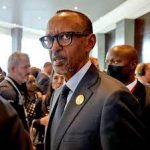As the winter nights lengthen, an even darker shadow is falling across the run-up to the Christmas holidays in several European nations. Families in markets and shopping districts across the continent are buying presents in the knowledge that jihadists mean to target them.
On November 21, the U.S. Department of State cited a “heightened risk of terror attacks” in an advisory statement set to expire only on February 20, 2017.
“Credible information,” quotes Newsweek, prompted a warning to American travellers to “exercise caution at holiday festivals, events, and outdoor markets,” given planned attacks by Al-Qaeda and ISIS.
Those attending “large holiday events, visiting tourist sites, using public transportation, and frequenting places of worship, restaurants, hotels, etc.” were likewise urged to exercise vigilance.
On December 16, German media reported that:
“a 12-year-old boy was suspected of planning two different bomb attacks in the western German city of Ludwigshafen. The German magazine ‘Focus’ said he had first tried to target a Christmas market at the end of November, before placing a backpack with explosives near a high-rise building containing both city hall and a shopping center.”
“The suspect was born in Germany but is of Iraqi heritage,” reported NBC News, adding: “the ‘strongly radicalized’ youth was likely ‘incited and instructed’ by an ‘unidentified member of ISIS.'”
This comes just two weeks after a December 2 report, Changes in Modus Operandi of Islamic State Revisited, from the European policing agency, Europol, cited the possibility of “several dozen” attacks against civilian soft targets.

In Ludwigshafen, Germany, a “‘strongly radicalized” 12-year-old boy “of Iraqi heritage” planted a bomb at a Christmas market at the end of November. (Image source: Focus video screenshot) |
With terrorists claiming to act in the name of ISIS already able to plan “relatively complex attacks — including those on multiple targets — quickly and effectively,” according to the Europol report, the tactics of the battlefields of the Middle East, “such as the use of car bombs, extortion and kidnappings,” may well be exported into Europe.
The credibility of such intelligence data has been further strengthened by a wave of arrests and increased troop deployments in several European countries. Germany, for instance, is associated with the ice rinks, outside stalls, and warm spiced wine of Christmas markets; an estimated 1,500 are spread across the country.
The strengthened security followed a credible bomb threat against an international soccer match on November 17, 2015, which forced the lockdown of the northern city of Hanover and a cancellation by Chancellor Angela Merkel, who had planned to attend.
On the basis of attacks in the country to date, the cities of Munich, Ansbach, Berlin, Ochsenfurt, Grafing, Reutlingen and Frankfurt — which contains the country’s largest Christmas market — are Germany’s danger hotspots.
The festive shopping tradition across Europe is causing headaches, however, to security officials in several other nations.
In France, twin swoops against an alleged jihadist cell, operating from the European parliamentary city of Strasbourg and the port city of Marseilles, thwarted attacks planned for December 1, against Disneyland Paris and the Christmas market on the main thoroughfare of the French capital, the Champs-Elysée.
Reports also suggest that this anti-terror operation may have come just in time to intercept a weapons shipment.
As the Europol report explains:
“[A]utomatic firearms still seem to be the weapons of choice of terrorist cells committing large scale attacks, because of their relative ease of access, use and effectiveness. Firearms can be obtained from criminal sources, in some cases from those the terrorists already know from their own criminal pasts.” (p.10)
The Daily Mirror reports: “It is feared that the current military operation on Mosul will force Islamic State to change tactics and rather than hold ground, concentrate on attacking Europe.” With returnees expected as a result of the eventual collapse of ISIS strongholds — 2,000-2,500 jihadists originating from Europe are still said to be fighting in Iraq and Syria — the terror group is predicted to start launching attacks against Europe from bases in Libya.
According to Jean-Charles Brisard, a leading French security expert, despite the more rigorous measures introduced by the French government as a consequence of the major attacks that have struck France since 2015, the capacity of the nation’s latent ISIS networks “has not been affected.” An increased presence of troops on French streets has already given the nation a paramilitary character.
Meanwhile, in Britain, the entirety of the country’s elite Special Forces, the SAS, have had their leave cancelled as a consequence of undercover deployments across the nation’s Christmas shopping districts.
Under Operation Temperer, run by the British Army, 5,000 troops are covertly patrolling busy streets, with police in cities such as London, Manchester and Birmingham all having asked for extra assistance. Outdoor Christmas markets, originally a feature of Germany’s holiday celebrations, have become increasingly popular in recent years across many British cities.
On December 11, officers armed with assault rifles raided locations in London, Burton upon Trent, and Derby, in an investigation believed to center on an ISIS plot to target Christmas markets. In “international terrorism-related” arrests, according to police sources, four men from Derby, aged 22, 27, 35 and 36, in addition to a 27-year old man from Burton upon Trent, have all been detained.
A 32-year old woman from London was also arrested “on suspicion of engaging in the preparation of an act of terrorism,” on behalf of the suspected ISIS terror cell. One of those being detained, according to the Daily Mail, is said to be an asylum seeker, “who may not have been in Britain for long.”
In Birmingham, the Christmas market has concrete barriers installed to deter vehicular suicide bombers. According to the head of Britain’s foreign intelligence service (MI6), the magnitude of the terrorism faced by the UK is “unprecedented.”
“The risks at stake are profound and represent a fundamental threat to our sovereignty,” said the MI6 chief, Alex Younger, who also cited the extreme dangers posed by “hybrid attacks,” in which conventional terrorism is combined with cyber-security breaches. Up to 3,000 Islamic extremists presently reside in Britain, according to Andrew Parker, head of its domestic intelligence agency, MI5.
The porosity of European borders has necessitated the need to ramp up cooperation between domestic and transnational security agencies across the continent. This makes the report issued by Europol instructive, issued as it was under the auspices of its British-born director, Robin Wainwright, as it goes to great lengths to play down the significance of cyber-attacks.
British security officers, however, have “never been under so much pressure, and the lack of agreement and effectiveness of international cooperation may well be one cause why.
Last year, the sense of nervousness was “palpable” among Germans, despite increased police deployed to Christmas markets in the states of Berlin, Baden-Württemberg, Bavaria, Hessen, North Rhine Westphalia and Thuringia.
This of course came before the New Year’s Eve wave of mass sexual assaults, which targeted Cologne, Hamburg and other cities, with the police failures which allowed for the assaults recently described in a new book entitled, The Night that Changed Germany.
Previously, the festive shopping tradition of Christmas markets had become “potent symbols of freedom,” with Germany’s Interior Minister, Thomas de Maizière, urging people to stick to unserem Leben — “our way of life.”
With a pro-Sharia law advocate now secretary of state in the Berlin regional senate, and other Muslims even refusing to shake the hand of the country’s president, Joachim Gauck, at events designed to promote integration, that way of life is changing fast.
George Igler, between 2010 and 2016, aided those facing death across Europe for criticizing Islam.

























